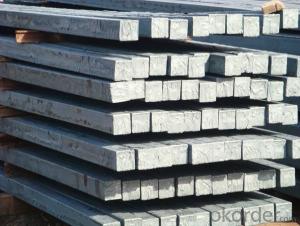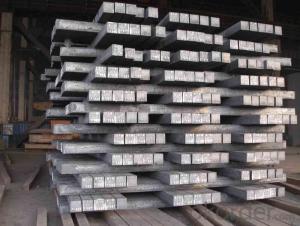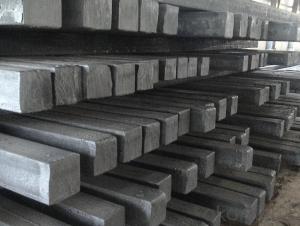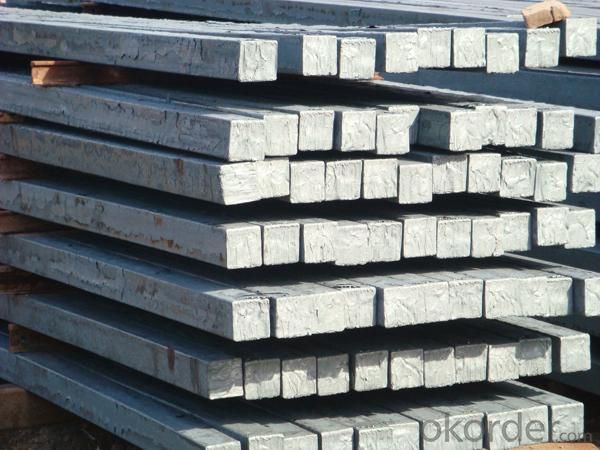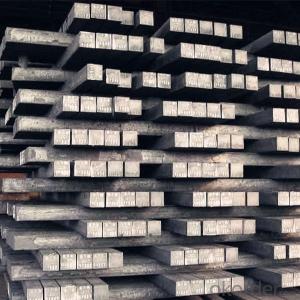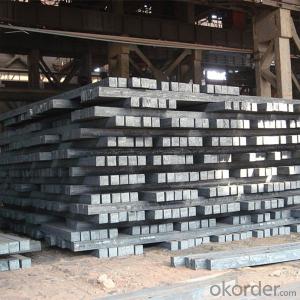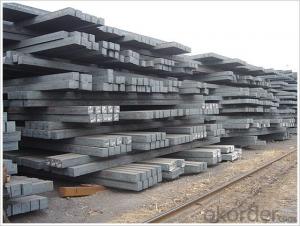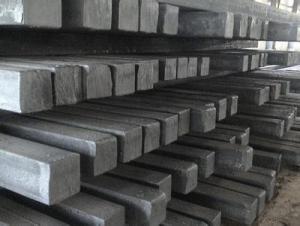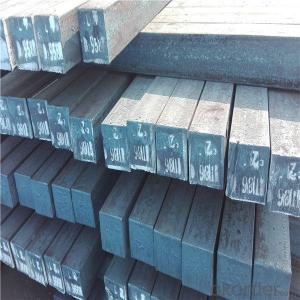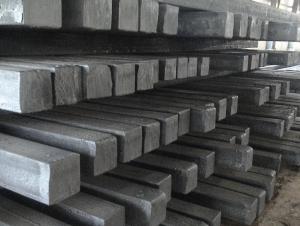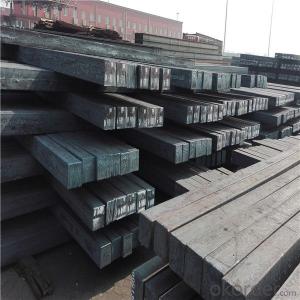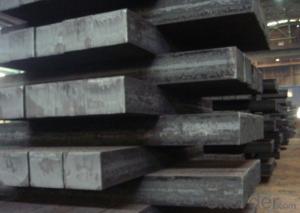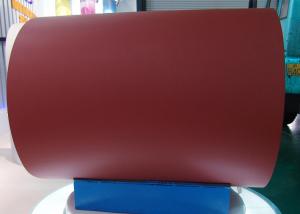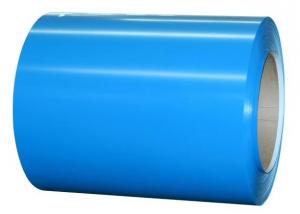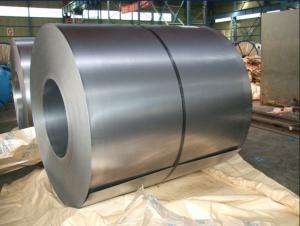hot rolled square steel billet
- Loading Port:
- China Main Port
- Payment Terms:
- TT OR LC
- Min Order Qty:
- -
- Supply Capability:
- -
OKorder Service Pledge
Quality Product, Order Online Tracking, Timely Delivery
OKorder Financial Service
Credit Rating, Credit Services, Credit Purchasing
You Might Also Like
square steel billet
1.3SP, 5SP
2.terms of payment: L/C at sight
3.size: 120*120mm
4.length: 5.8~12m
square steel billet
Specifications
square steel billets
1)We procure world class quality steel billets which meets the specific requirements of the clients
The Billets produced by the company can be broadly divided into three main types i.e.
M.S. Billets
CRS Billets
Special Alloy Billets
M.S. Billets are used for rolling of TMT Re-Bars of Fe415 and Fe500 Grade and various other structural steel products.
CRS Billets are used fro rolling of CRS TMT Re-Bars.
Special Alloy Billets are used for rolling of any special grade TMT Re-Bars like Earthquake resistant TMT Re-Bars and for special grade structural steel products.
The following are the sizes of Billets available with Shyam Steel Industries Ltd.:
100 X 100
120x120
150 X 150
Physical Properties:
Description
As per IS 2830
Shyam Billets
Bend (max.) 5 mm per meter >= 5 mm per meter
Carbon (max.) 3mm per meter >= 3 mm per meter
Length 3 mt - 13 mt 3 mt - 9 mt
Chemical Properties:
Ladle Analysis:
Designation
Carbon
Manganese
C15 0.12-0.18 0.30-0.60
C18 0.15-0.21 0.30-0.60
C20 0.17-0.23 0.30-0.60
C15 MMn 0.12-0.18 0.60-1.00
C18 MMn 0.15-0.21 0.60-1.00
C20 MMn 0.17-0.23 0.60-1.00
C15 HMn 0.12-0.18 1.00-1.50
C18 HMn 0.15-0.21 1.00-1.50
C20 HMn
0.17-0.23 1.00-1.50
Billets of different designations are manufactured in three different grades namely A, B, C having sulphur, phosphorous content (on ladle analysis) and carbon equivalent as follows:
Chemical Analysis:
Grade Sulphur Phosphorous Carbon Equivalent (CE)1
Max Max Max
A 0.05 0.05 0.42
B 0.045 0.045 0.41
C 0.04 0.04 0.39
- Q: What are the different types of steel products used in the manufacturing of outdoor furniture?
- The different types of steel products commonly used in the manufacturing of outdoor furniture include steel tubing, steel rods, steel sheets, and steel plates. These products are used to create the frames, support structures, and surfaces of outdoor furniture pieces such as chairs, tables, and benches.
- Q: How is steel plate formed into seamless pipes?
- Steel plate is formed into seamless pipes through a process called piercing and rolling. In this process, the steel plate is first heated and then pierced to create a hollow tube. The pierced tube is then elongated and shaped using a series of rollers to achieve the desired dimensions and thickness. This seamless pipe manufacturing method ensures a uniform and continuous structure without any welded seams.
- Q: How do steel products contribute to the infrastructure development of cities and urban areas?
- Steel products play a crucial role in the infrastructure development of cities and urban areas. They are widely used in the construction of buildings, bridges, highways, and other critical structures. The strength and durability of steel make it an ideal material for these applications, ensuring the safety and longevity of the infrastructure. Additionally, steel is versatile and can be easily shaped, making it suitable for various architectural designs. Its recyclability and sustainability also make it an environmentally friendly choice. Overall, steel products provide the necessary support and framework for the development and growth of cities and urban areas.
- Q: How are steel products used in the construction of airports and terminals?
- Steel products are extensively used in the construction of airports and terminals due to their strength, durability, and versatility. Steel is used for structural frameworks, such as beams and columns, providing the necessary support and stability for large-scale airport buildings and terminals. It is also used for roofing systems, hangars, and canopies, ensuring protection from the elements and creating functional spaces. Additionally, steel is commonly employed in the construction of runways, aprons, and taxiways, as it can withstand heavy loads and provide a smooth surface for aircraft operations. Overall, steel products play a crucial role in the construction of airports and terminals, contributing to their safety, efficiency, and long-lasting performance.
- Q: How are steel products used in the construction of theme-based resorts and hotels?
- Steel products are used in the construction of theme-based resorts and hotels in various ways. They are commonly used for structural components such as beams, columns, and frames, providing strength and stability to the buildings. Steel is also used for roofing systems, walls, and partitions, offering durability and protection against harsh weather conditions. Additionally, steel is utilized in the fabrication of decorative elements, such as railings, staircases, and facades, adding aesthetic appeal to the overall design of the resort or hotel. Overall, steel products play a crucial role in ensuring the safety, longevity, and visual appeal of theme-based resorts and hotels.
- Q: What are the properties of carbon steel for industrial use?
- Carbon steel is a popular choice for industrial applications due to its unique properties. It is a strong and durable material, with a high tensile strength and excellent hardness. Carbon steel is also known for its good thermal conductivity and electrical conductivity, making it suitable for various heating and electrical applications. Furthermore, carbon steel is highly malleable and can be easily shaped and machined, allowing for versatile use in different industries. It is also relatively affordable and readily available, making it a commonly used material in construction, manufacturing, and engineering.
- Q: How are steel plates used in the fabrication of storage tanks?
- Steel plates are used in the fabrication of storage tanks as they provide a strong and durable material that can withstand the pressure and weight of the stored contents. The plates are cut and welded together to form the tank's structure, ensuring a secure and leak-proof container for storing various substances such as liquids or gases.
- Q: How is steel billet produced?
- Steel billet is produced through a process called continuous casting, where molten steel is poured into a water-cooled mold to form a solid rectangular shape. The billet is then further processed through heating, rolling, and shaping techniques to achieve the desired dimensions and properties.
- Q: How do steel products contribute to the construction of zoos and wildlife sanctuaries?
- Steel products play a vital role in the construction of zoos and wildlife sanctuaries by providing structural support and durability to various facilities and enclosures. Steel is used to construct enclosures, fences, gates, and animal habitats, ensuring the safety and security of the animals and visitors. Additionally, steel is used in the construction of walkways, viewing platforms, and bridges, allowing visitors to have a closer and safer interaction with the animals. Its strength and versatility make steel an essential material in creating a sustainable and long-lasting environment for the animals, while also enhancing the overall aesthetics of these facilities.
- Q: What are the different types of steel fasteners and connectors available?
- There are several types of steel fasteners and connectors available, including screws, bolts, nuts, washers, rivets, and nails. Each type serves a specific purpose and is designed to provide a secure and reliable connection in various applications.
Send your message to us
hot rolled square steel billet
- Loading Port:
- China Main Port
- Payment Terms:
- TT OR LC
- Min Order Qty:
- -
- Supply Capability:
- -
OKorder Service Pledge
Quality Product, Order Online Tracking, Timely Delivery
OKorder Financial Service
Credit Rating, Credit Services, Credit Purchasing
Similar products
Hot products
Hot Searches
Related keywords
